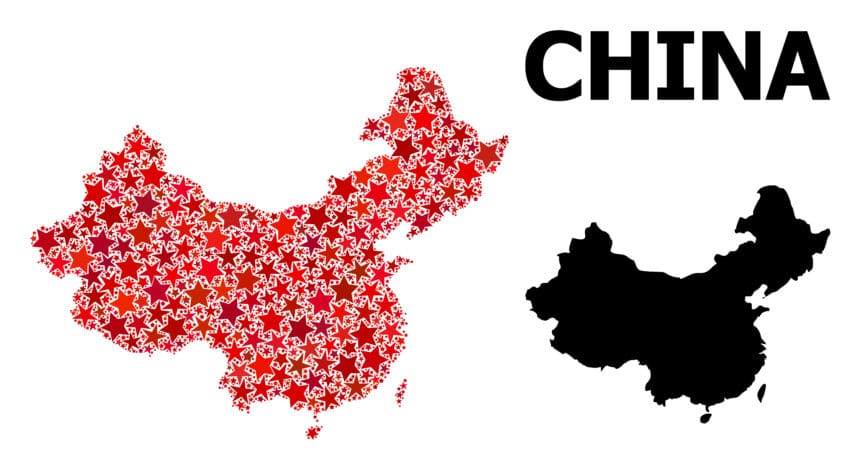China is one of the many countries that is making major headway with big data. Its commitment to using big data is one of the reasons that China is starting to become the most powerful economy in the world. As a result, the market for big data in China is currently worth 1.5 trillion yuan.
One of the reasons that big data is so valuable in China is due to its unique zip code system. Some researchers from Peking University have talked about these benefits in their article A gridded establishment dataset as a proxy for economic activity in China. The Chinese zip code systems offer efficient and effective ways to tract data and analyze it. The system captures further information about demographics, such as age, gender, and location, which is basically for business intelligence and analytics. This data can then be used to gain deep insights into customer behavior, market trends, and other business-critical decisions.
Understanding China’s Zipcode System
China’s zipcode system, introduced in 1980, consists of a six-digit numerical code that uniquely identifies specific regions. These china zip codes encompass provinces, cities, districts, and even smaller localities, enabling accurate sorting and delivery of mail. However, their use extends beyond traditional postal purposes.
The zipcode system forms a comprehensive geographic database that underpins multiple industries. Its precision and scalability make it invaluable for location-based data collection and analysis. This rich dataset can drive business intelligence and data analytics, especially when integrated with emerging technologies.
Business Intelligence: The Zipcode Connection
Zipcodes are integral to business intelligence frameworks because they provide geospatial context to data. In China, businesses are increasingly using zipcode-level data for:
- Market Segmentation
Zipcodes help organizations understand customer demographics and preferences at a granular level. For example, e-commerce companies can tailor their marketing strategies based on consumer behavior patterns in specific regions.
- Operational Efficiency
- Zipcode data optimizes supply chain logistics, helping companies streamline operations. Accurate data enables better inventory management, route optimization, and cost reduction.
- Strategic Decision-Making
Business leaders rely on zipcode-based analytics to identify market opportunities, assess regional risks, and allocate resources effectively. This geographic insight ensures that strategies are aligned with real-world trends.
Data Analytics: The Engine Behind Insights
China’s zipcode system serves as a cornerstone for data analytics initiatives by providing a structured framework for geographic data aggregation. When combined with big data, the insights are transformative:
- Predictive Analytics
Businesses can predict consumer behavior, demand trends, and market shifts using zipcode data. For example, a retailer might analyze historical purchasing trends in certain zipcoded areas to anticipate seasonal demand.
- Sentiment Analysis
Integrating zipcode data with social media analytics allows businesses to assess regional customer sentiments. This approach is particularly useful in gauging public response to products or services in different parts of the country.
- Performance Tracking
Zipcodes enable businesses to monitor regional performance metrics. Whether it’s sales volume, delivery times, or customer satisfaction, geographic data helps pinpoint areas of strength and improvement.
Emerging Technologies Enhancing Zipcode Utility
As China continues to embrace digital transformation, its zipcode system is finding new applications in fields like cloud computing, artificial intelligence (AI), and the Internet of Things (IoT).
- Cloud Computing Integration
Cloud platforms store and process zipcode data at scale, making it accessible for complex analytics. This scalability enables businesses to perform real-time analysis across regions, enhancing agility and decision-making.
- AI-Powered Insights
Artificial intelligence algorithms analyze zipcode data to uncover hidden patterns and correlations. AI-driven tools can recommend optimal warehouse locations, predict urban growth areas, or even assist in disaster planning.
- IoT in Smart Cities
In China’s rapidly growing smart cities, zipcode data powers IoT devices to manage resources efficiently. From traffic management systems to energy distribution networks, these technologies rely on precise geographic data for optimal functionality.
- Cybersecurity Applications
Zipcode-level data contributes to secure digital ecosystems. For example, location-based authentication systems use zipcodes to validate user access, protecting sensitive information.
Challenges and Opportunities
While the potential of China’s zipcode system is vast, there are challenges that businesses and analysts must address:
- Data Quality and Accuracy: Maintaining consistent and up-to-date zipcode data is essential for reliable analytics.
- Integration Complexity: Combining zipcode data with other datasets (e.g., demographic or sales data) requires robust technical frameworks.
- Privacy Concerns: Using geographic data responsibly is crucial to ensure compliance with data protection laws.
Despite these challenges, the opportunities outweigh the hurdles. Businesses that invest in the right tools and strategies can unlock immense value from zipcode-based insights.
Future of Zipcode Analytics in China
The future of zipcode analytics in China is bright, driven by advancements in technology and data science. As businesses continue to innovate, the integration of zipcode data with AI, machine learning, and big data platforms will redefine industries.
For instance, location-based services (LBS) will see significant growth, providing hyper-personalized experiences to consumers. Additionally, the integration of zipcode analytics into national planning initiatives, such as China’s smart city projects, will create new opportunities for businesses and policymakers alike.
Conclusion
China’s zipcode system is more than a postal convenience—it is a goldmine for business intelligence and data analytics. By leveraging this structured geographic data, businesses can gain actionable insights, optimize operations, and stay ahead in an increasingly competitive landscape.
As data-driven decision-making becomes the norm, the role of zipcodes in fueling analytics and intelligence will only grow. Whether it’s improving supply chains, enhancing customer experiences, or driving technological innovation, China’s zipcode system is a key enabler of progress.










